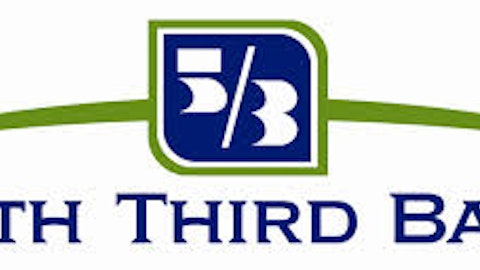Morgan Housel: How should Paulson, Bernanke and Tim Geithner have responded in September 2008?
Hank Greenberg: They had their mind made up. They wanted to use AIG as a backdoor bailout. You had Goldman Sachs, you had Morgan Housel Stanley, you had many institutions who were using AIG to get them funds, and they did.
Now, they could have had access to the window, and they ultimately got access to the window, but they would have gotten a lot more access to the window. Their debt would have been much greater. This eliminated a lot of debt that they otherwise would have had to come up with.
Morgan Housel: What did you think about the terms and the validity of the other bailouts that were given to companies like Citigroup, Bank of America, Goldman Sachs?
Hank Greenberg: The Fed guaranteed — Citi and a number of others — guaranteed a lot of their assets at a fraction of the cost. If the Fed, as an example, had guaranteed AIG FB for whatever; 100 or 200 basis points …
Morgan Housel: That was the Financial Products division of AIG that was running the derivatives?
Hank Greenberg: Yeah. It all would have been over. AIG would have regained its AAA rating, and there would have been no collateral calls necessary, and a lot of those assets came back. In fact, AIG was buying some of them last year. Buying them out of the Fed, so clearly if they hadn’t lost their nerve and they’d done it the right way, it all would have been over.
Morgan Housel: Hank Paulson talks in his book about how, in hindsight, it’s easy to say, “We should have done this. We did this wrong. We should have …” and they admit that they did things wrong, in hindsight, but they had such short time constraints — some of these bailouts they had to put together in literally hours — that when you’re under those constraints you’re going to make big mistakes that are only visible in hindsight.
What’s your response to that?
Hank Greenberg: Well, I think that’s an easy statement to make. They were looking after some firms and didn’t care about other firms. It’s very simple.
AIG was used. Let’s face it, AIG was used. The government didn’t do badly. They made about $23 billion on AIG.
Morgan Housel: Your lawsuit is for $25 billion, based on the terms of the deal.
Hank Greenberg: Correct.
Morgan Housel: That goes to C.V. Starr? That goes to AIG shareholders?
Hank Greenberg: It goes to shareholders after deducting, obviously, the expense of the lawsuit.
Morgan Housel: Do you think we’ve learned anything over the past five years, or do you think we’re doomed to keep making these mistakes again?
Hank Greenberg: I think the pendulum sometimes runs too far in one direction, has to come back to the middle. That’s the way we’ve always been, unfortunately. Are we going to make the same mistake next time around?
Depends when next time around is. Is it going to be next month? I think we’ve learned. If it’s about 5-10 years from now, I’m not sure we’ve learned.
Morgan Housel: Do you think the global financial system is safer today than it was in 2007?
Hank Greenberg: It’s now so tight you can’t do anything.
Morgan Housel: That’s an interesting point of view. It might be as dangerous, but there’s not much we can do about it?
Hank Greenberg: I think that, if you look at the regulators that we have, and had at the time, how did all this start in housing? It started with the government.
When our Governor was the head of HUD, they loosened the reins. The decision by the administration was, “We want more Americans to own their homes.” They dropped the qualifications for getting mortgages, and people who couldn’t afford a home got a home.
Morgan Housel: The mortgages are being purchased by Fannie and Freddie, right?
Hank Greenberg: Yeah.
Morgan Housel: But a tremendous amount, virtually all of the subprime that was being done in 2005-06 was all in the private market, correct?
Hank Greenberg: Yeah.
Morgan Housel: It wasn’t until 2007 that Fannie and Freddie started getting into subprime.
Hank Greenberg: No, I understand that. I understand that, but they fed on it. Once you start down that road, it became a little easier next time, to the next one, the next one, and the next one.
Then you go beyond that. The SEC, where were they when the investment banks were leveraging the capital 40 to 1? Did you hear anybody say anything?
The blame is widespread. I think if you look at some other countries — a city-state like Singapore — a tiny state but very well run and the regulators are terrific. They get paid as much as they would if they were in the private sector, or maybe more. They’re intelligent, smart.
We need to change the dynamics here in the regulatory structure.




